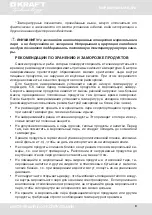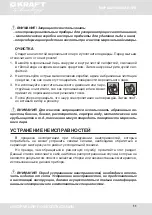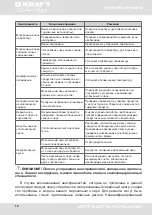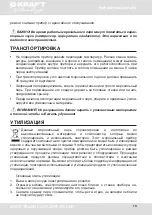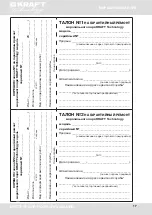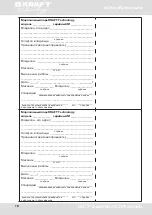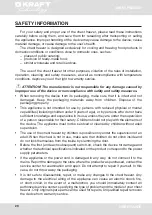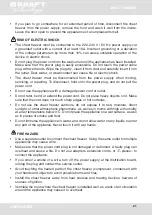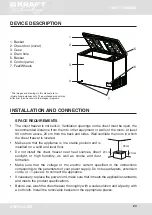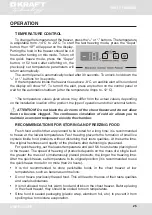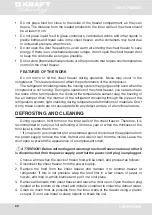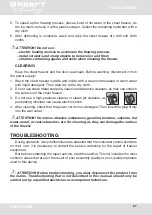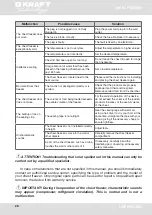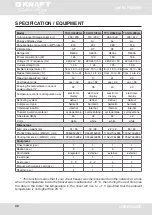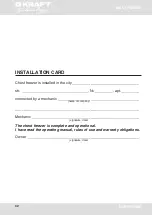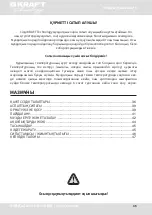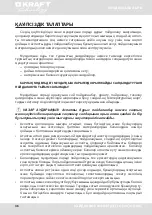
22
CHEST FREEZER
USER GUIDE
DANGER OF EXPLOSION
• Do not use or store flammable materials such as ether, gasoline, alcohol, liquefied
petroleum gas (propane-butane), sprayers, medicines, or cosmetics in the chest
freezer. This can lead to an explosion, fire, damage to stored products, or a chemical
reaction.
• The refrigerant (R600, isobutane) contained in the chest freezer system, is a natural
gas under high pressure, the most compatible with the environment and safe, yet
combustible.
RISK OF DAMAGE
• Install the chest freezer on a flat, hard, dry surface to prevent it from falling and to
avoid injury or death.
• During transportation and installation of the chest freezer, make sure that the cooling
system is not damaged.
• Safety precautions must be observed when moving the chest freezer. It must be
moved by at least 2 people and in no case behind the door, the hinges are not
designed for the weight of the chest freezer and may break. Do not place heavy
objects on the chest freezer. Do not use it as a countertop for anything.
• Do not place children, pets, or electrical appliances inside the chest freezer. Make
sure that they do not damage the chest freezer or the power cord.
• Do not put bottles of carbonated drinks in the chest freezer, as when the liquid is
frozen, the pressure in the container increases, which can lead to an explosion and
damage to the chest freezer.
• After disconnecting the chest freezer from the mains, turn it on again no earlier than
5 minutes to avoid damage to the compressor.
• Do not touch food from the chest freezer with wet or wet hands, as this may cause
frostbite and skin damage.
• Ice can cause skin damage and frostbite if consumed directly from the freezer
chamber.
• Do not use mechanical devices to break the ice from the inner walls of the freezer or
other ways to speed up the defrosting process.
• Do not allow fats and oils (including vegetable oils) to get on the body and plastic
parts of the device to avoid their damage. Do not heat the plastic parts.
• Keep the chest freezer and the door seal clean. Do not use sharp metal scrapers,
caustic and abrasive cleaning products, as they can scratch the surfaces of the chest
freezer.
ATTENTION! To avoid overloading the network, do not use other high-power
appliances in the same circuit.
!


